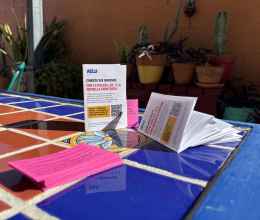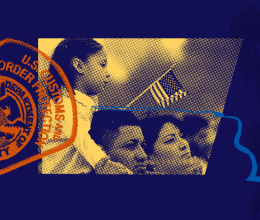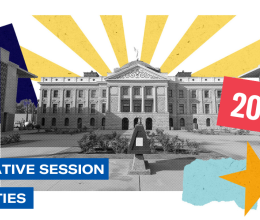
Phoenix — Today, the Arizona State House passed HCR 2060, a sweeping anti-immigrant ballot referral that will bypass the governor’s desk to be placed on the 2024 ballot for voter consideration in November.
Noah Schramm, border policy strategist for the ACLU of Arizona, shared the following reaction:
“This is a dark day for many in Arizona, especially those who remember the devastation and fear caused by the state’s notorious ‘show me your papers’ law, SB 1070. If approved at the ballot in November, HCR2060 would pose similar risks of racial profiling, harassment, and arrest of long-time Arizona residents. What’s more, it would direct enormous state resources towards immigration enforcement — an issue of clear federal responsibility — in ways that are ineffective, inhumane, and unconstitutional.
“If the goal of HCR 2060’s proponents was to frighten communities of color across the state, threaten the separation and incarceration of families at the border, and otherwise cast Arizona as a deeply unwelcoming place for immigrants, they may well have succeeded.”
HCR 2060 has no geographic limits for enforcement actions, age restrictions, or exemptions for sensitive locations like schools, hospitals, or places of worship. The proposal would grant civil immunity to local government officials and law enforcement for damages resulting from actions taken during enforcement of the law.
HCR 2060 would disrupt the asylum process for individuals facing persecution or danger in their country of origin. State officials would be required to detain immigrants in county jails and state prisons, and the proposal fails to consider cases when families with minor children are arrested. Subsequently, the state would have to separate children from their parents or adult family members due to age and custody restrictions in carceral facilities. Finally, Arizona would incur enormous court and incarceration costs to enforce HCR 2060, with lower-end estimates falling in the hundreds of millions of taxpayer dollars per year, jeopardizing public services across sectors.




